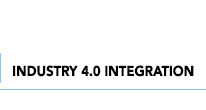Fictron Industrial Supplies Sdn Bhd
No. 7 & 7A,
Jalan Tiara, Tiara Square,
Taman Perindustrian Sime UEP,
47600 Subang Jaya,
Selangor, Malaysia.
No. 7 & 7A,
Jalan Tiara, Tiara Square,
Taman Perindustrian Sime UEP,
47600 Subang Jaya,
Selangor, Malaysia.
+603-8023 9829
+603-8023 7089
Fictron Industrial
Automation Pte Ltd
140 Paya Lebar Road, #03-01,
AZ @ Paya Lebar 409015,
Singapore.
+65 31388976
sg.sales@fictron.com
Automation Pte Ltd
140 Paya Lebar Road, #03-01,
AZ @ Paya Lebar 409015,
Singapore.
+65 31388976
sg.sales@fictron.com
Google CEO Talks Huawei, Regulations and Company Size
30 Sep 2019


View Full Size
In spite of its commanding presence as a technology titan, Google faces no shortage of challenges. U.S. President Donald Trump has publicly questioned its work with China. There are increasing calls to better protect the large amount of personal user data Google handles, and authorities in the U.S. have launched an antitrust investigation into some of its activities.
''We are not building a search project for China. I think we have been very clear on that for a while now,'' CEO Sundar Pichai told Nikkei in an interview. Google's former plans to re-enter mainland China with a censored version of the Google search engine has met aggressive criticism from the Trump administration and Congress.
''I think the U.S.-China bilateral trade conversations are really important,'' Pichai said, revealing his intend that the two sides ''get it right in a way that works for their citizens.''
Regarding the company's business relationship with Huawei Technologies, Pichai said that its Android is an open source platform and still available to the Chinese smartphone maker. ''We do everything consistent with the law, to help sustain that ecosystem.''
In regards to Huawei developing its own mobile operating system after the U.S. government banned American companies from exporting items to the company, Pichai said ''Huawei is a very successful company, and I think they will have initiators.''
''I fully expect Huawei to serve its users, and I think we all have to adjust to the realities of the trade situation and work accordingly,'' he said.
A new struggle facing Google is the patchwork of regulatory regimes rising in several countries. A self-described ''tech optimist,'' Pichai accented the importance of balancing regulation and innovation. ''There is some inherent tension between countries, rightfully, being worried about safeguarding its own citizens and better protecting them,'' he said. ''And helping balance that against a connective, open, and free internet'' that creates new opportunities.
''Depending on how early your technology is, you want to make sure you can innovate, because technology can also solve important problems.''
One area where regulations are beginning to come into view is data privacy. Privacy rules give ''a clear framework for what users can expect, what businesses need to comply with, and I think it's good to have standards and frameworks for technology,'' Pichai said.
Such regimes can become a burden for Google, which derives more than 80% of its revenue through digital advertising. But the company believes that privacy regulations are not avoidable. He pointed to the European Union's General Data Protection Regulation as an example of a framework that gives users a clear idea of how their privacy is protected, and companies ideas on how to build products. ''Hopefully it's a template for the rest of the world,'' he said, suggesting that a unified, global standard would be perfect.
Problems arise when different countries and regions create their own frameworks, creating a patchwork of regulations. Japan, the U.S., and India are all considering the issue, and California is set to enact statewide regulations next year. Pichai pushed back against the charge that Google has become too big. ''At a high level, stepping back, we're a company at scale. The internet works at scale.''
''We have hundreds of researchers who work on AI in health care, to help better detect and treat diseases, as an example,'' he said, also pointing to the company's work on AI and cyber security. ''The scale at which you need to do these things involves tremendous R&D, and the need to do it at scale.''
In answer to criticism over the company's aggressive merger and acquisition strategy, Pichai stressed that Google was not seeking to monopolize any market and that it still competes with other companies in several areas. ''We are behind some other companies in cloud,'' he said as an example.
Authorities have been cracking down on tech giants, with about 40 U.S. states launching antitrust probes into Google and Facebook this month. The company will most likely continue at odds with the government when it comes to its scale and activities for some time.
As to artificial intelligence, Pichai is more cautious when it comes to regulation, at least for now. The field ''is very much in its infancy, and we also are approaching a lot of our AI work in an open way,'' he said. Google's position is that regulating current forms of AI, which can only handle certain tasks like image recognition or translation, will not eliminate bias and other issues with the technology.
But ''I expect robust AI regulation to be there'' over time as the field progresses toward general purpose AI, Pichai said. He cited Google's AI principles published last year, and said each company needs to consider about its ethical standards for the technology.























